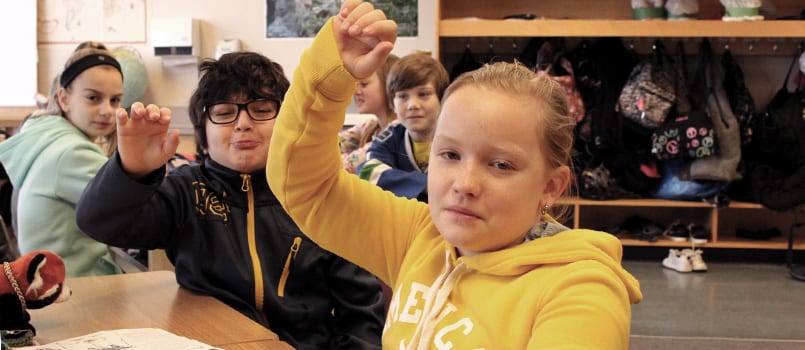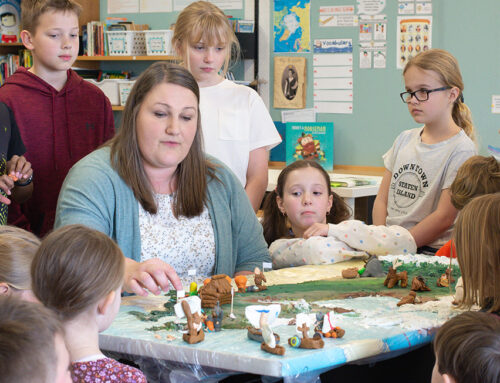I thought the lesson was going smoothly. I was sharing my brilliant insights on how to best incorporate specific writing traits into a personal narrative, and the students were keenly taking notes, nodding their heads and absorbing my self-perceived wisdom. Suddenly, from the center of the classroom, a loud voice yelled out, “BORING! BORING! BORING!” After an awkward pause, and the realization the voice belonged to one of my special needs students (who did like to yell out from time to time), I muttered something like, “Well, let’s start our first drafts,” and tried to save face by hoping the bell would ring quickly.
I realized later that indeed, the lesson was quite boring—especially for my special needs student. While I much would have preferred this student to approach me quietly before class asking for improved opportunities (instead of blurting out, “BORING”), it was good the student let me know of his concern.
There are some other things I wish children would stop saying, but I’m beginning to realize their words often mean something different than what’s said on the surface. When my student said, “BORING!” he was actually crying out for meaningful learning. Here are a few other common complaints:
- “I can’t do this” or “This is dumb” This phrase can be frustrating! Some youngsters may simply be disinterested in the task (or lazy?) and use this phrase as a way to “check out” and quit. However, there are times when an adult misses the mark and needs to make adjustments to the difficulty level of the task. Often this phrase is a face-saving way for a child to ask for help, and adults ought to respond patiently and kindly. “I can’t do this” frequently equals, “Can I have some help?” while “This is dumb” comes from a child who wants to understand the bigger picture, “Can you explain why this is important?”
- “That’s not fair” Sadly, this phrase seldom disguises something positive like the previous two phrases. When kids complain about fairness, they are often acting in selfish ways, seeking more of something or another for themselves. One example is the student who complains, “That’s not fair,” when their classmate gets dismissed early as a reward for consistently cleaning up their desk area for a week. Another is the child who decries the unfair distribution of ice cream! Once in a while, however, children use this phrase in God-glorifying ways that echo some of the prophets’ cries for justice! When young image-bearers see the devastating effects of poverty—both locally and worldwide— and then cry out, “That’s not fair!” they are actually asking, “Can we bring godly justice to this situation?”
- “This is too easy” This one is easy! On the surface, the child is simply bragging about their superior intelligence, right? Well, some children sadly do feel the need to make themselves look better by throwing this phrase into the middle of an activity or play date, and the effects for community-building are devastating. When I asked my students how it made them feel to hear someone else say this phrase, they responded with these adjectives: “stupid, worthless, slow and dumb,” and to hear that from almost all my students breaks my heart. Either these kids are hurting for attention, saying, “Can you please notice my good accomplishments?” or (and I love this one) they are yearning for an opportunity to grow in their learning, asking, “Can you give me a challenge?”
Obviously, this list is not an exhaustive compilation of all child complaints, but I think if we can pay keen attention to what our children might really be saying, we can begin to turn their complaints into questions. Then those questions can lead to learning that makes a difference in their lives and in God’s world!






WHAT DO YOU THINK?